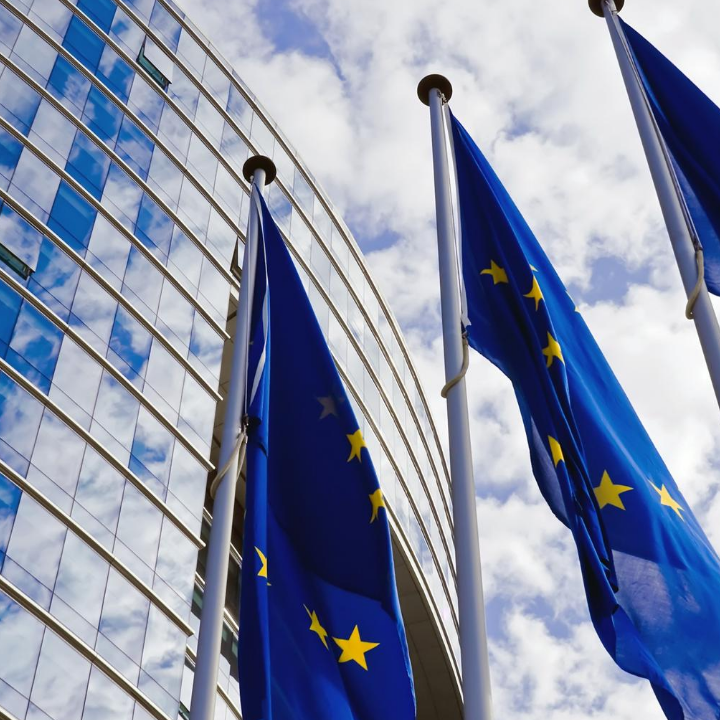Mandatory Human Rights Due Diligence in the EU: The Promise and the Risk

Photo: sinonimas, Getty Images via Canva
Olivier de Schutter and Sharan Burrow highlight the important role EU legislation will play in strengthening the bargaining power of unions and social movements in the global South – if it incentivises companies to continuously improve their human rights record, on the one hand, and holds them legally accountable for the impact of their activities on the other.
At the end of April, based on a study presented in early 2020, and following more than ten years of advocacy from NGOs and unions, the European Commission announced that it would make a proposal for binding EU legislation on due diligence in supply chains to ensure human rights and environmental standards are complied with for all products sold on the EU market. This is also a priority for the European Parliament, and the German presidency of the Council itself has announced progress would be made on this issue before the end of 2020.
This is an important and welcome development. In effect, it shall make access to the EU market and its 450 million consumers, representing more than one fifth of the global GDP, conditional upon complying with certain core requirements defined in international human rights law – including the core ILO conventions protecting workers’ rights — and in multilateral environmental agreements. This will significantly strengthen the bargaining power of unions and social movements in the global South, who are calling for a more human-centred and sustainable form of development. We currently face a vicious cycle, in which companies are tempted to outsource their activities to jurisdictions where wages are low, labour legislation weak or under enforced, or union activity discouraged, and where environmental standards are lax or undermined in practice – and in which, in turn, countries are tempted to further lower social and environmental standards to attract investment, seeking to achieve a competitive advantage by maintaining workers in poverty and by tolerating an extractive use of nature. It is this vicious cycle that the new legislation will break, thus constituting a strong bulwark against the risks of social and environmental dumping entailed in the current form of economic globalisation.
But the adoption of mandatory due diligence for companies operating in the EU is also good for business. Although corporations already are subject, to a certain extent, to uniform reporting requirements on non-financial matters under directive 2014/95 – an important tool to encourage socially responsible investment –, they still face today a highly fragmented regulatory environment, in which each Member State sets its own requirements concerning the extent to which companies should monitor suppliers, franchisees and subsidiary companies, with regard to compliance with human rights and environmental standards. This fragmentation makes it difficult for them to navigate across the internal market, in effect requiring they keep abreast of developments within 27 different jurisdictions. It is the source of legal uncertainty, since courts in a number of EU Member States are imposing duty of care obligations on companies based on general civil liability rules, even in the absence of explicit legislation on this, often leading to contradictory and unpredictable judicial decisions. It also leads to a distortion of competition within the internal market: whereas certain Member States (such as France with its 2017 Law on due diligence, the Netherlands with its 2019 Child Labour Due Diligence Law, or the United Kingdom with the adoption in 2015 of the Modern Slavery Act) have made progress on this issue, most countries are still lagging behind, adopting a wait-and-see approach, and perhaps secretly hoping that not-too-scrupulous companies shall re-organise their activities in order to minimise their liabilities under such legislation, perhaps by relocating certain activities where the regulatory framework is less burdensome – a mistaken calculation in the long run, but one that could be damaging in the short term, delaying progress across the European Union.
There are therefore a number of reasons to support this new important step forward, which is now supported by a broad alliance going far beyond unions and NGOs. However, as the debate shifts from the principle of adopting mandatory due diligence legislation at EU level to the precise content of such legislation, it is important to ensure that corporate actors remain encouraged to permanently improve their track record in complying with human rights and environmental standards. This is the warning from a study commissioned by ITUC on how mandatory due diligence should be established: Due diligence should not degrade into a box-ticking exercise, shielding companies from any form of liability provided they follow the standard list of “do’s” and “do not’s”. This is why HRDD and potential civil liability for violations occurring in the supply chain should be treated as two separate, albeit complementary, duties. The former is a duty to prevent the risk of of human or environmental rights violations occurring within the supply chain or the corporate group. It is forward-looking and essentially imposes on companies that they seek information from their business partners or affiliates and that they act on the basis of such information to minimise the negative human rights or environmental impacts of their activities. The latter is backward-looking: it is a duty to accept liability where such preventative measures have failed, but where it can be shown that, should the company have done more, it could have avoided the harm from occurring.
In our view, even if HRDD duties (as may be prescribed under the future EU framework) are fully complied with, this should not result in a guarantee of legal immunity from civil liability claims, where it appears that the preventative measures have failed to stop the harm from occurring: once the victim has proven that the harm was inflicted and that it is in connection with the company’s activities, it should be for the company to rebut the presumption that it could have done more to prevent such harm from materialising.
Unless we keep the two separate, HRDD, for the imposition of which so many actors have fought for so many years, shall become a formalistic exercise, leading companies to adopt a minimalistic approach simply to shield themselves from the risk of liability – in effect, buying legal immunity by ticking the boxes. We need the opposite: we need to incentivise corporate actors to permanently improve and adopt a “hands-on” and proactive approach to ensure human and environmental rights are fully complied with in the supply chain or the corporate group.
HRDD is essential to ensure that the EU contributes to a form of economic globalisation that contributes to human development. It should not become a substitute for ensuring a right to remedy for victims of corporate negligence.
Photos by Olivier de Schutter & ITUC
Perspectives from Business, Public Sector, Academia and Civil Society
This post is an excerpt from our collation of perspectives on Mandatory Due Diligence ahead of the German EU Council presidency. Click through below to read all of the contributions from around the globe.


